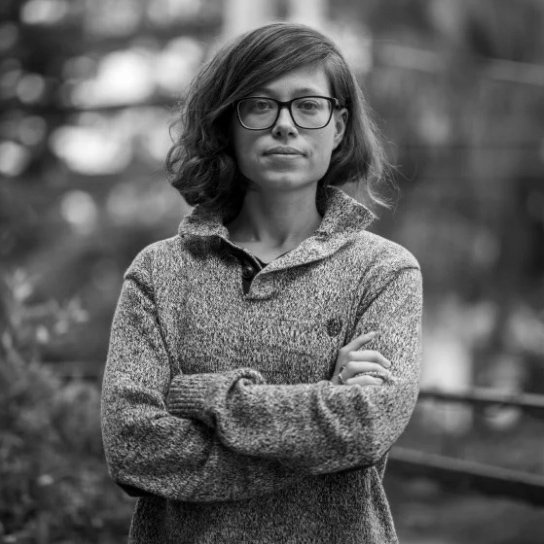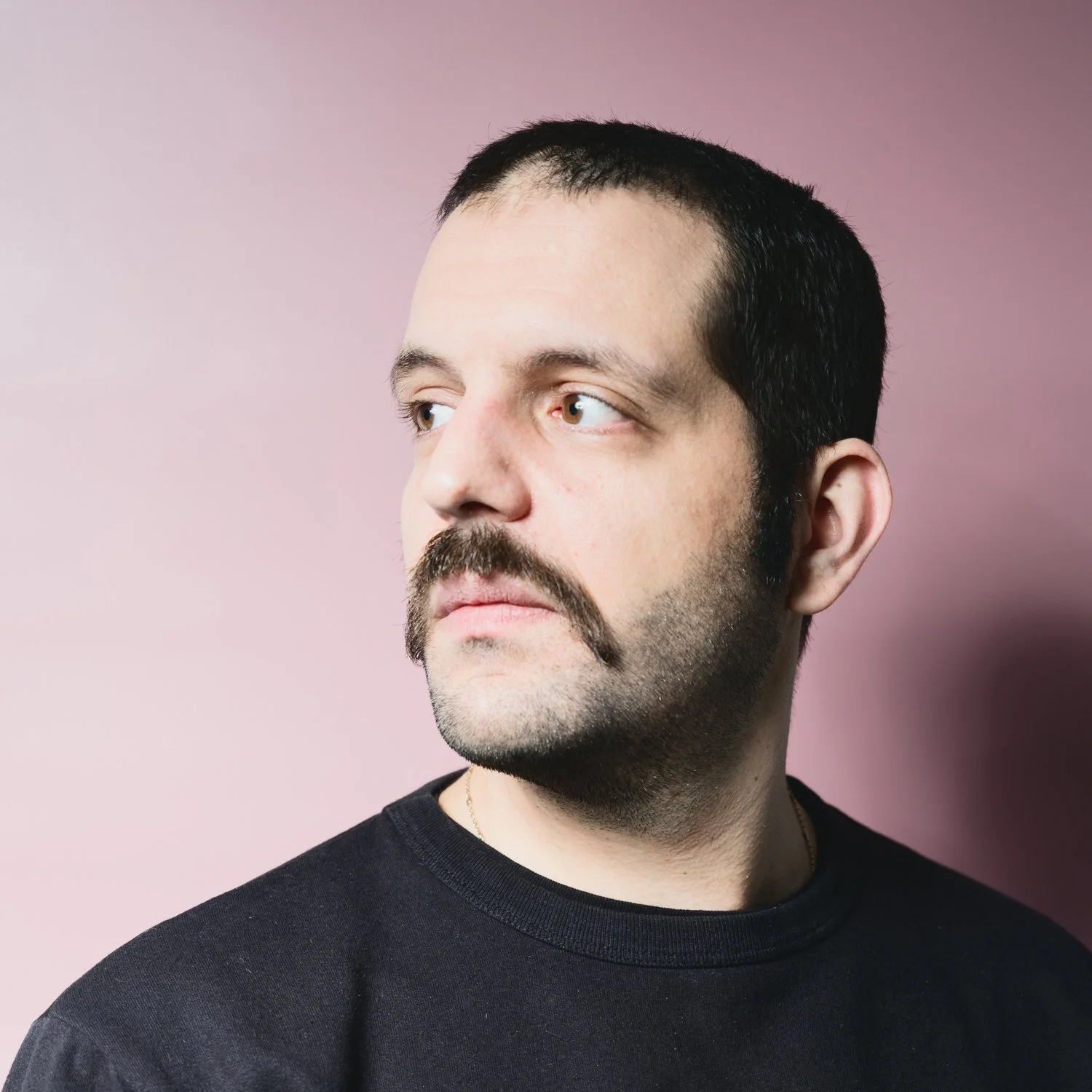Speaking Out Under Bukele
MAY 9, 2024
The Reporter’s Notebook is our monthly interview series with Dial contributors. To receive these conversations directly in your inbox, sign up for our newsletter.
✺
A conversation with Danielle Mackey, whose reporting on environmental activism in El Salvador under President Nayib Bukele was published in our Money issue.
Photo: Contracorriente
El Salvador faces the resurgence of mining activities as President Nayib Bukele’s administration considers overturning a ban on metal extraction. Environmental leaders who worry about the impact of mining on the country’s clean water sources, and who championed the ban until it passed in 2017, now confront potential threats as their hard-won victory hangs in the balance. Dial intern Eythana Miller spoke with Danielle Mackey, who reported on El Salvador’s mining policies for our Money issue, about building trust with sources, how Bukele’s regime vilifies the voices it disagrees with, and more.
THE DIAL: With such a complex array of actors involved in the story — from local activists to international corporations and government bodies — how did you go about mapping out and approaching your research and reporting for the piece?
DANIELLE MACKEY: In some ways, this was a unique situation because I was living in El Salvador as this all went down and saw a lot of it firsthand. I remember the shock in June of 2009 of finding out Marcelo had been killed. Then two more activists were killed in December and there was a dizzying array of threats coming against others, like the radio journalists and the local priests who were accompanying the environmentalist movement.
Around the same time, El Salvador was hauled before an arbitration tribunal in Washington, D.C., run by the World Bank, because the mining firm alleged a breach of contract. I found it strange that such a suit was possible, because what I was seeing in El Salvador was people doing everything possible to protect their national water supply. These environmentalists, people from rural hamlets, had educated the entire country on the risks of mining and successfully convinced not only the masses, which is a huge historic feat on its own, but also a deeply polarized political system to support the fight for water. Having watched it all unfold, the ligaments of the story — the drama of it and the people at its center — were obvious to me. So in that sense, it wasn’t as difficult as it might have been, had I been coming to it fresh.
THE DIAL: How did you build trust with sources who were risking a lot by talking to you, especially in such a politically charged environment?
DM: That’s a result of the same context — these are people I had known for years and interviewed multiple times. I had the benefit of that trust. But the dynamic in El Salvador is changing. The danger and the backsliding that’s happening in El Salvador now since the rise of President Nayib Bukele is completely different. The government is going after social movement leaders in strategic ways. It’s a charged time to be talking about these things. The threat comes directly from the state in a way that it hasn’t in years, or maybe ever, for these environmentalists.
I'm forever amazed at how willing people are to take risks to speak out for what’s right. But being so close to El Salvador for so long, and then watching Bukele rise to power, has taught me something that I thought I knew beforehand, but I didn’t really understand. When authoritarianism installs itself, it starts to persecute those who are defending rights and truth, and what those defenders are doing is the same exact thing they were doing before the regime arrived. If they're journalists, they’re interviewing people and publishing articles. If they’re environmentalists, they’re talking to scientists and organizing their communities. There’s very little change, if any at all, in the actions of these people. What changes is the attitudes and the behaviors of the people in power.
It disturbs me that this is all it takes to become an enemy of the state. I feel naive not having understood that before; I’ve never watched a democracy die like this, so totally and so fast, and in a place that’s a home of mine. So much about history is making more sense these days. El Salvador has this long history of martyrs that’s familiar to anyone who’s a student of the country. Monsignor Romero is perhaps the best-known example. People like him inspire a lot of bravery and plot a path for the future because of having given their own lives for what they were defending. They are rightly venerated by subsequent generations, but it turns out that, while what they did was remarkable, it was also disturbingly rote. They just continued to do what they had always done. It was the state that made this dangerous.
THE DIAL: Did you report this story from El Salvador or remotely from the U.S., and if you were in El Salvador, were you ever worried about safety while reporting?
DM: I’m now based in New York, but I reported this story in El Salvador. Local journalists are always the most in danger in Central America. Foreign journalists — especially those who fly in for the story like I did, who don’t live where they’re reporting — we have a lot of undue privilege. The same is true for our sources; they face much more danger than we do. We foreign journalists have to prepare ourselves before we go into a situation where we know there might be some risk, to basically zip up our own concerns so that, once we’re in the field, our attention is on the more vulnerable people around us, including our sources. Preparing can mean following security protocols or doing first-aid and risk assessment training through courses like HEFAT.
Reporting is different in El Salvador under Bukele. He and his circles are threatened by journalism and have repeatedly lashed out at the local press. At the same time, the rule of law doesn’t functionally exist in the country anymore, so when they decide to go after someone, there’s little means of defense or protection. You have to be cautious and aware, and there is a fear that was never present before, which is true for everybody, even for some foreign journalists. But the overriding thing is that someone like me will never be in nearly as much danger as my sources and local colleagues.
THE DIAL: At the end of your article, you report that one of your sources, Morales, "fears that a next round in the mining battle will be more harrowing than the first." Have there been any developments or changes since you talked to Morales or wrote the piece?
DM: We don’t have any new information, unfortunately. That kind of eerie specter of what’s coming next remains in the air. Everybody is all too aware of what can come, of what the backlash against environmentalists can look like. That time of murders and threats wasn’t so long ago. And just like for journalists, the fact that there’s little democracy left means environmentalists have limited options to lobby the state or to seek protection from it. Everybody’s kind of at the mercy of what the Bukele administration decides to do.
THE DIAL: Is there anything else you think readers should know?
DM: These environmental battles happen all over the world. They are localized, and the distinctions between them and among them are important, but so too is the wider shared vision of a world that is less extractivist and that defends human life and human flourishing instead of the zero sum game focused on profit for a few. And not only are the struggles shared transnationally, but the actors that are attempting to engage in the extractivist projects are often transnational — they may be firms from a foreign country, like the Canadian and Australian firms in this case, or they may be so huge and border-crossing that they have significant presence in multiple countries. The point is that readers might be closer to these stories than they think, and I would encourage them to continue to think in that connected way.
✺ Read “Soiled Gold” in “Issue 14: Money”
DANIELLE MACKEY is a U.S. journalist who covers Central America. She works part-time at The New Yorker, writes for various U.S. and Central American outlets and sits on the editorial board of Contracorriente. Mackey lived for over a decade in El Salvador.
EYTHANA MILLER is a writer and editor from Montana. She was a California Humanities Emerging Journalist fellow and her work appears in CalMatters, The Berkeley Political Review, and Edible Shasta-Butte. A California transplant, she studies political economy at UC Berkeley.





